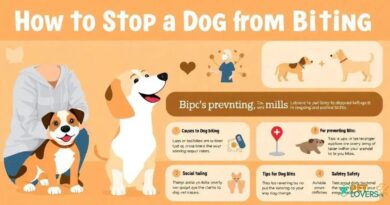What is Optimum nutrition
What is Optimum Nutrition?
Optimum nutrition refers to the ideal balance of nutrients that a dog requires to maintain optimal health and well-being. This concept encompasses not only the quantity of food but also the quality of ingredients used in dog food. Understanding what constitutes optimum nutrition for dogs is essential for pet owners who want to ensure their furry companions lead healthy, active lives.
The Importance of Balanced Diets
A balanced diet for dogs includes a mix of proteins, carbohydrates, fats, vitamins, and minerals. Each of these components plays a crucial role in a dog’s overall health. Proteins are vital for muscle development and repair, while carbohydrates provide energy. Fats are essential for healthy skin and coat, and vitamins and minerals support various bodily functions. Achieving optimum nutrition means providing the right ratios of these nutrients tailored to a dog’s specific needs.
Understanding Dog Food Labels
To ensure your dog receives optimum nutrition, it’s important to read and understand dog food labels. Ingredients are listed in descending order by weight, so the first few items are the most significant. Look for high-quality protein sources, such as chicken or beef, as the primary ingredient. Avoid foods with fillers like corn or soy, which offer little nutritional value. Understanding these labels can help you make informed choices about your dog’s diet.
Life Stage Nutrition
Optimum nutrition varies depending on a dog’s life stage. Puppies have different nutritional needs compared to adult dogs and seniors. Puppy food is typically higher in calories and nutrients to support growth and development. Adult dogs require a balanced diet to maintain their health, while senior dogs may need lower-calorie diets with joint support. Tailoring your dog’s diet to their life stage is crucial for optimum nutrition.
Special Dietary Needs
Some dogs may have specific dietary needs due to health conditions or allergies. For instance, dogs with food allergies may require hypoallergenic diets, while those with obesity may need weight management formulas. Consulting with a veterinarian can help identify any special dietary requirements your dog may have, ensuring they receive optimum nutrition tailored to their health status.
The Role of Supplements
In some cases, dog owners may consider supplements to enhance their pet’s diet. Omega-3 fatty acids, probiotics, and joint supplements can contribute to optimum nutrition, especially for dogs with specific health concerns. However, it’s essential to consult with a veterinarian before introducing any supplements to your dog’s diet, as excessive supplementation can lead to health issues.
Homemade vs. Commercial Dog Food
When considering optimum nutrition, pet owners often debate between homemade and commercial dog food. Homemade diets can be tailored to meet a dog’s specific needs, but they require careful planning to ensure they are nutritionally balanced. On the other hand, high-quality commercial dog foods are formulated to meet AAFCO standards, providing a convenient option for busy pet owners. The choice depends on individual circumstances and preferences.
Monitoring Your Dog’s Health
Regular veterinary check-ups are essential for monitoring your dog’s health and ensuring they are receiving optimum nutrition. Vets can assess your dog’s weight, coat condition, and overall health, providing recommendations for dietary adjustments if necessary. Keeping track of your dog’s health can help you make informed decisions about their nutrition and well-being.
Hydration and Nutrition
Hydration is a critical aspect of optimum nutrition that is often overlooked. Fresh, clean water should always be available for your dog, as proper hydration supports digestion, nutrient absorption, and overall health. Dehydration can lead to serious health issues, so ensuring your dog drinks enough water is just as important as providing a balanced diet.




